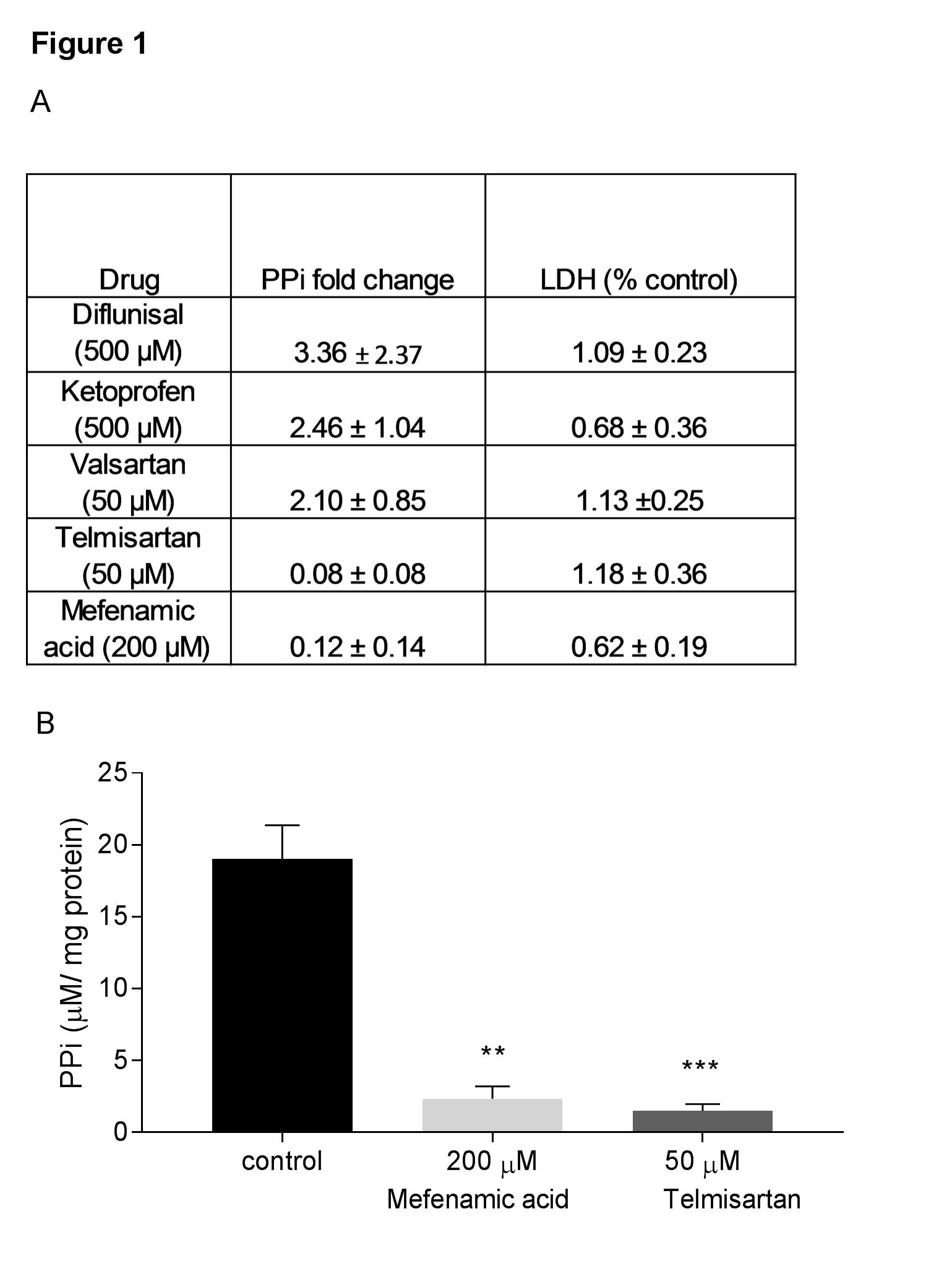Session Information
Date: Monday, October 22, 2018
Title: Metabolic and Crystal Arthropathies – Basic and Clinical Science Poster I
Session Type: ACR Poster Session B
Session Time: 9:00AM-11:00AM
Background/Purpose:
Calcium pyrophosphate deposition (CPPD) disease results from articular calcium pyrophosphate deposition leading to arthritis. We currently lack specific and effective therapies for this commonly encountered entity. Prior studies have demonstrated excess pyrophosphate (PPi) production in the cartilage of patients with CPPD. Targeting the earliest phases of CPP crystal formation has the potential to reduce future joint damage and avoid inflammatory episodes. Previous studies demonstrated that probenecid reduced PPi production by chondrocytes. Probenecid is an organic anion transport inhibitor. It has some disadvantages in that it is highly insoluble in culture and may not achieve therapeutic levels in synovial fluids. In this project, we tested the ability of other FDA approved drugs that act as organic anion transport (OAT) inhibitors to suppress PPi levels in chondrocyte cultures.
Methods:
Normal knee cartilage was obtained from mature pigs. Cartilage was enzymatically digested and chondrocytes were plated in high density serum-free culture conditions shown to preserve the chondrocyte phenotype. Chondrocytes were treated with various OAT inhibitors including diflunisal, ketoprofen, valsartan, telmisartan, and mefenamic acid at three separate concentrations for 72 hours. Media were collected and a luminescent PPi assay was utilized to measure PPi levels. PPi levels were corrected for cell protein and media LDH levels were used to assess for toxicity. Two of the OAT inhibitors, telmisartan and mefenamic acid, were further tested based on the initial results. Significant differences between groups were assessed utilizing a Kruskal-Wallace statistical test.
Results:
Figure 1A summarizes average PPi changes and LDH levels in three experiments using the concentration of each drug that had the maximal effect on PPi. Of the 5 drugs tested, mefenamic acid and telmisartan displayed inhibition of PPi levels without causing toxicity. Figure 1B shows statistically significant suppression of PPi by mefenamic acid 200 µM and telmisartan 50 µM. (N=12 and p < .01**, and p < .001***)
Conclusion:
We show here that PPi levels were decreased in the presence of two FDA-approved OAT inhibitors, mefenamic acid and telmisartan. These drugs show some promise in their ability to modulate PPi production, a process essential to CPP crystal formation. Further work will be needed to validate the clinical importance of this interesting finding.
To cite this abstract in AMA style:
Faseehuddin M, Gohr C, Mitton-Fitzgerald E, Rosenthal A. Organic Anion Transport Inhibitors Suppress Chondrocyte Pyrophosphate Production [abstract]. Arthritis Rheumatol. 2018; 70 (suppl 9). https://acrabstracts.org/abstract/organic-anion-transport-inhibitors-suppress-chondrocyte-pyrophosphate-production/. Accessed .« Back to 2018 ACR/ARHP Annual Meeting
ACR Meeting Abstracts - https://acrabstracts.org/abstract/organic-anion-transport-inhibitors-suppress-chondrocyte-pyrophosphate-production/

